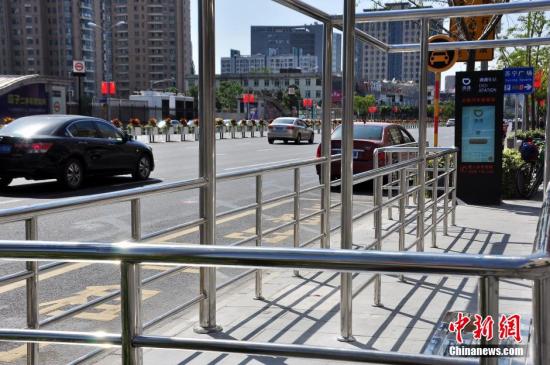
BEIJING, April 19 (Xinhua) — Following the "strike" of taxi drivers in some parts of China, their competitors – special drivers have also joined the "strike" team.
According to the "Securities Daily" report, during the peak taxi-hailing period last Friday, some private car software in Beijing experienced a large-scale outage, some Didi and Uber drivers "went on strike", and even there was a "needle action" against their peers: forcing other normal operating drivers to participate in the strike, otherwise they will place an order as a passenger and maliciously cancel or complain.
The root cause of all this is that the drivers are dissatisfied with the dwindling subsidies, so they can protest to the taxi-hailing software platform. A reporter from China News Agency interviewed and found that many drivers who used to easily earn 10,000 yuan a month complained that this year due to the reduction of subsidies, their income is also less and less, and they have "almost the same as the income of taxi drivers".
In order to seize the market, many taxi-hailing apps started a "subsidy war" in the early stage. It is estimated that in 2015, taxi-hailing apps such as Yidao Yongche, Uber and Didi Kuaidi "burned" 20 billion yuan on passenger subsidies. This model not only brought consumers a feast of low-cost taxi-hailing, but also raised the income of private car drivers.
However, the "burning money" model of Internet companies during the development period will inevitably not last. As the market gradually matures and the competition landscape gradually takes shape, it is foreseeable that the income of special car drivers will decrease.
In addition, the unfair competition brought about by subsidies has long aroused the dissatisfaction of traditional taxi drivers. Subsidies make online ride-hailing fares very low, which has greatly eroded the traditional taxi market. Squeezed living space and high management fees "part money" have led to many collective "strikes" by taxi drivers as "regular troops" to express dissatisfaction.
Law enforcement authorities remain "staunch defenders" of the interests of traditional taxis against the backdrop of China’s pending legalisation of ride-hailing. At the end of last month, Shanghai issued a notice pointing out that online private cars are "illegal passenger transport" and should be "centrally rectified". Key law enforcement areas such as railway stations, airports and hospitals in Beijing remain "forbidden areas" for drivers to pick up and drop off guests.
As for the game and balance between online car-hailing and traditional taxis, the industry has long discussed that "the essence is the same, and the management is the same" may be the biggest consensus. Cheng Shidong, director of the Urban Transportation Office of the Comprehensive Transportation Research Institute of the National Development and Reform Commission, told China News Agency that in essence, online car-hailing and taxis are taxis and belong to the same industry. "Since they are the same thing, the management and standards must be unified to compete on an equal footing."
For a long time, the relatively high rate of online car-hailing traffic violations and traffic accidents, and the low application threshold for drivers have also added a shadow to the safety of this industry. The malicious cancellation of orders, complaints and other threats by some private car drivers to participate in the strike have once again exposed the long-term problem of lack of supervision and regulation in the private car industry.
In October last year, China issued the "Exposure Draft Measures for the Administration of Online Booking Taxi Business Services". Analysts believe that this is equivalent to acknowledging the legal status of online car-hailing. According to industry sources, the current government management and supervision of online car-hailing is accelerating, and China’s online car-hailing is about to operate in a legalized market environment.
Strikes continue, debates continue, and safety concerns are cause for concern. This is the portrait of the industry after the emergence of online car-hailing. However, with the advent of special cars, people have become more convenient, cheaper, and more personalized. The service level of the industry has also improved, and the details of the standardization of online car-hailing have gradually become clear… The entire Chinese taxi industry is ushering in a new era of change in the throes. (End)
关于作者